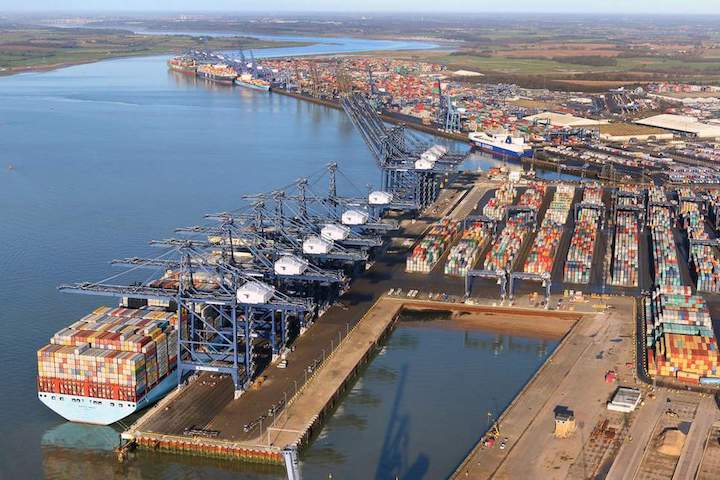British exporters risk their goods sitting in quarantine and not being paid for unless a Brexit deal can be found by the end of next week.

Prime Minister Theresa May is spending Thursday in Brussels, seeking concessions to her Brexit deal that can win the support of both the EU and the U.K. parliament. Unless she resolves that conundrum, Britain is on course to tumble out of the bloc on March 29, losing the benefits of EU membership, including beneficial trade terms with countries on the other side of the globe.
“For many companies, it’s not 50 days away, hard Brexit happens nine days from now,” Stephen Phipson, chief executive of the EEF manufacturing lobby group, said. “Those are the first ships that are going to land post-March 29 in southeast Asia. If products get loaded on the ships, exporters have no idea when they land whether they’ll be on a 20 percent tariff regime. Will they need rules of origins certificates?”
Phipson’s remarks hammer home the real-world implications of the limbo that companies faces as lawmakers squabble over the shape of Brexit. Britain has about 40 trade deals with 70 nations through its EU membership, and, to ensure continuity, Trade Secretary Liam Fox is trying to get those countries to agree to trade with the U.K. on the same terms after Britain leaves the bloc.
In The Dark
But businesses are in the dark about progress. Those trade deals account for about 11 percent of U.K. trade, according to Phipson, who said that Fox has told him he’s confident he can clinch a rollover for deals worth about 8 percent of trade.
Without knowing which agreements will be continued, companies face a huge risk if they send consignments to southeast Asia after Friday next week, because the goods would be likely to reach their destination after Britain’s scheduled exit from the EU.
The U.K. so far has signed continuity trade agreements with Chile, the Faroe Islands, and eastern and southern Africa, and has “initialed” a free trade deal with Switzerland.
“Our priority is to avoid disruption to our global trading relationships,” the Department for International Trade said in an emailed response to questions. “We will continue to engage with all our trading partners and businesses should continue to plan for a range of Brexit scenarios, including no deal.”
Circular Arguments
The fate of exports to far-flung locations isn’t the only no-deal Brexit mystery facing British companies, according to Phipson. His organization is also pushing for clarity on topics ranging from the protection of intellectual property to contract arbitration.
On some issues, the government is telling businesses to consult their solicitors and the solicitors say they’re waiting for advice from the government, Phipson said in an interview on Thursday. “When you start lifting the bonnet, there are quite a few areas which are as yet very, very undefined.”
He warned that the U.K. will lose “hundreds of thousands of jobs” in a no-deal Brexit if the government’s own worst-case forecast for trade through the port of Dover materializes. That would involve an 87 percent drop in trade with Calais.
The EEF represents 20,000 U.K. manufacturers, employing a million people. Phipson’s warning on exports echo those made by Business Secretary Greg Clark earlier this week and by May’s de facto deputy, David Lidington, to BBC radio on Thursday.
“Almost nobody wants a no-deal and a crash because they know the harm that would do to our economy,” Lidington said.








